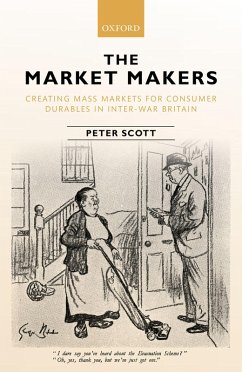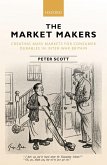During the twentieth century 'affluence' (both at the level of the individual household and that of society as a whole) became intimately linked with access to a range of prestige consumer durables. The Market Makers charts the inter-war origins of a process that would eventually transform these features of modern life from being 'luxuries' to 'necessities' for most British families. Peter Scott examines how producers and retailers succeeded in creating 'mass' (though not universal) market for new suites of furniture, radios, modern housing, and some electrical and gas appliances, while also exploring why some other goods, such as refrigerators, telephones, and automobiles, failed to reach the mass market in Britain before the 1950s. Creating mass markets presented a formidable challenge for manufacturers and retailers. Consumer durables required large markets. Most involved significant research and development costs. Some, such as the telephone, radio, and car, were dependent on complementary investments in infrastructure. All required intensive marketing - usually including expensive advertising in national newspapers and magazines, while some also needed mass production methods (and output volumes) to make them affordable to a mass market. This study charts the pioneering efforts of entrepreneurs (many of whom, though once household names, are now largely forgotten) to provide consumer durables at a price affordable to a mass market and to persuade a sometimes reluctant public to embrace the new products and the consumer credit that their purchase required. In doing so, Scott shows that, contrary to much received wisdom, there was a 'consumer durables revolution' in inter-war Britain - at least for certain highly prioritised goods.
Dieser Download kann aus rechtlichen Gründen nur mit Rechnungsadresse in A, B, BG, CY, CZ, D, DK, EW, E, FIN, F, GR, HR, H, IRL, I, LT, L, LR, M, NL, PL, P, R, S, SLO, SK ausgeliefert werden.









